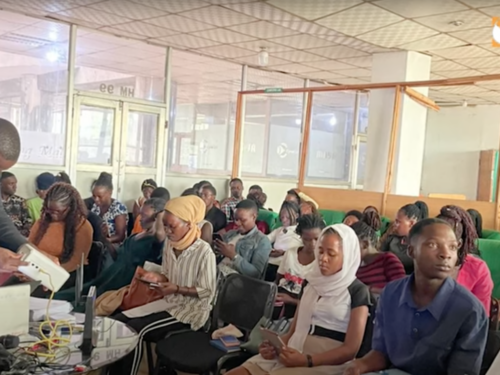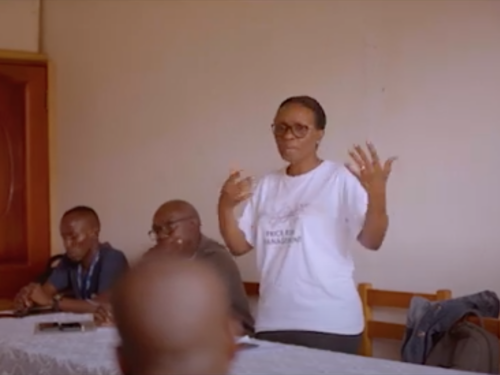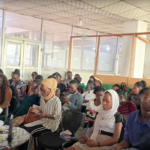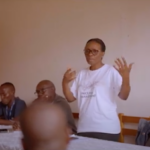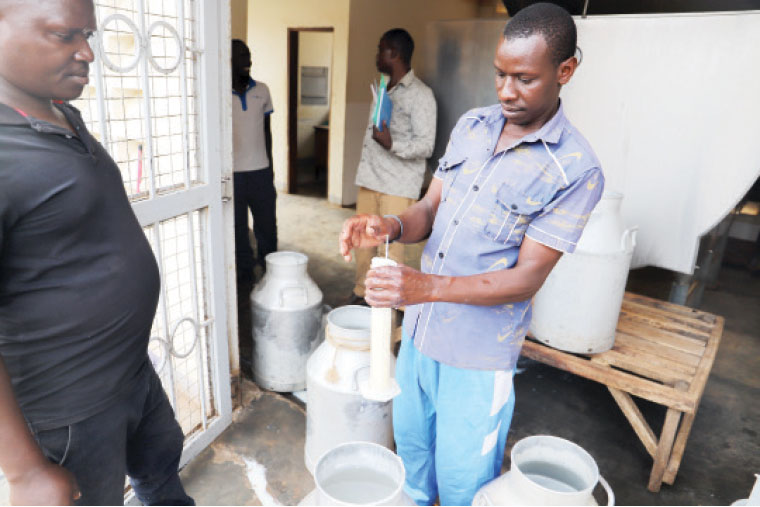
A new mobile app is bringing financial products to farmers across East Africa. Emata is tailored for dairy farmers and will allow them to use the power of loans to invest in the productivity of their farms.
Through transparent recording, the app will also ensure daily milk deliveries are registered whereby the farmer automatically gets instant information about the quantity and price of the milk delivery, writes BAKER BATTE LULE from The Observer.
According to statistics from Uganda Dairy Development Authority, out of Uganda’s annual milk production of 2.5 billion litres, 80 per cent is sold while 20 per cent is consumed by the producing households.
But much as the biggest percentage is sold, farmers barely get what is due of their efforts. Oftentimes, middlemen take the lion’s share of proceeds from milk and this is so because farmers face challenges such as difficulty in accessing the market, production on a small scale by individual farmers and failure to access financial services to improve on production, among others.
It is for such bottlenecks that Laboremus, a financial and technology company based in Kampala with roots in Norway, teamed up with the Agriculture Development Centre [ADC] and the Rabobank Foundation to find solution.
The result of this partnership is Emata, an online app that helps farmers access credit, know about the prices of milk as well as access animal drugs and feeds, among others. According to Bram Willen van den Bosch, the managing director of Laboremus, Emata technology will go a long way in uplifting the standards of living of rural farmers.
Because of this, Agribusiness Development Centre (ADC)-supported cooperatives can now get access, training and support for the Emata solution. Through the app that can also work without internet access, Emata is building a credit history through digitising milk delivery systems. Using this information, Laboremus then extends credit to farmers, having assessed the productivity of their farms.
Loans are processed and given out using the phone without one having to first go to a credit facility. Recently, Laboremus, ADC and Rabobank Foundation signed a memorandum of understanding to work together to see the success of the app.
In the memorandum, Rabobank Foundation, which holds majority shares in Dfcu bank Uganda is to provide finance to Laboremus to carry out a pilot study of the app starting with the Bugerere Dairy Cooperative Society.
On the other hand, ADC which already works with the cooperative society that was started in 1968 and boasts of 330 members to provide training on how to manage a cooperative and also financial literacy, will continue to educate dairy farmers on how they can leverage working with the app.
Speaking at the signing of the memorandum of understanding in Kampala recently, Bosch said farmers are yet to benefit fully from dairy farming because of lack of information. He said using cooperatives to reach out to individual farmers has been a successful mode elsewhere in the world; that’s why they want to try it out in Uganda.
“The potential for agriculture in this country is very high but we believe that technology is the future for farmers. We want to improve the way cooperatives are managed in all forms, including financial management,” Bosch said. He added that Laboremus is happy to work with Rabobank Foundation, the biggest agricultural bank in the world, and ADC, to improve agriculture not only in Uganda but the whole of Africa but using Uganda as a model”
“Through smart use of both technology and field training, we believe that this partnership will build a foundation on which cooperatives and farmers can grow stronger, more efficient and prosperous.”
Emata was launched in 2017 with a vision to provide affordable loans to farmers across East Africa. Commercial banks rarely give loans to especially small-scale farmers for the risks associated with the agricultural sector such as bad harvests, price fluctuations and drastic changes in weather, among others.
For her part, Anja de Feijter, the managing director of ADC, said they will continue to provide financial literacy to farmer groups so as to increase household incomes.
“The diary sector is very important to Uganda’s economy; that’s why we realised the need for training and financing especially using technology to develop individual farmers to improve their livelihood,” de Feijter said, adding that by 2022, they will have trained 180,000 farmers.”
Pim Mol, the managing director of Rabobank Foundation, said they have interest in growing agriculture in Uganda so as to use it as a success model elsewhere in Africa.
“There is a very good possibility to develop innovative ways to change livelihoods for farmers. Access to finance across the country, we believe, will significantly improve the agricultural sector in Uganda like it has done elsewhere in Europe where we have worked,” Mol said
He added that the dairy sector is data-driven; therefore, there is need to provide farmers with relevant information on how to improve production and also get better prices for their products.

